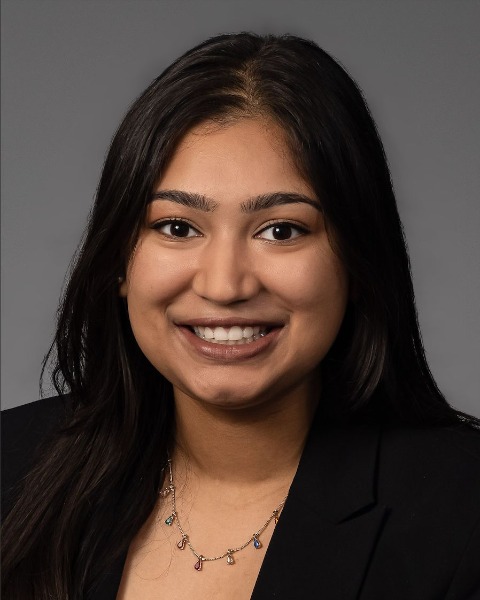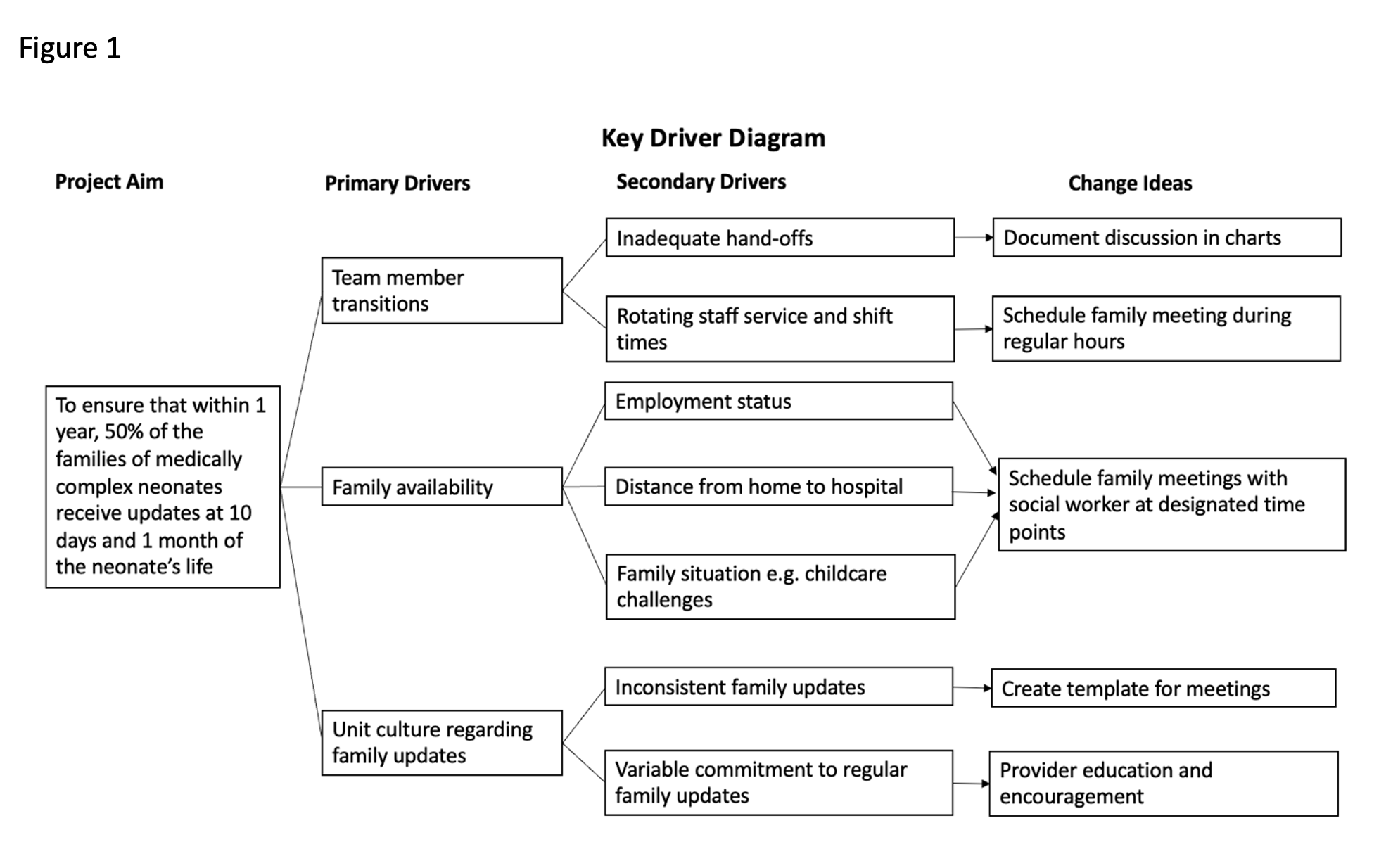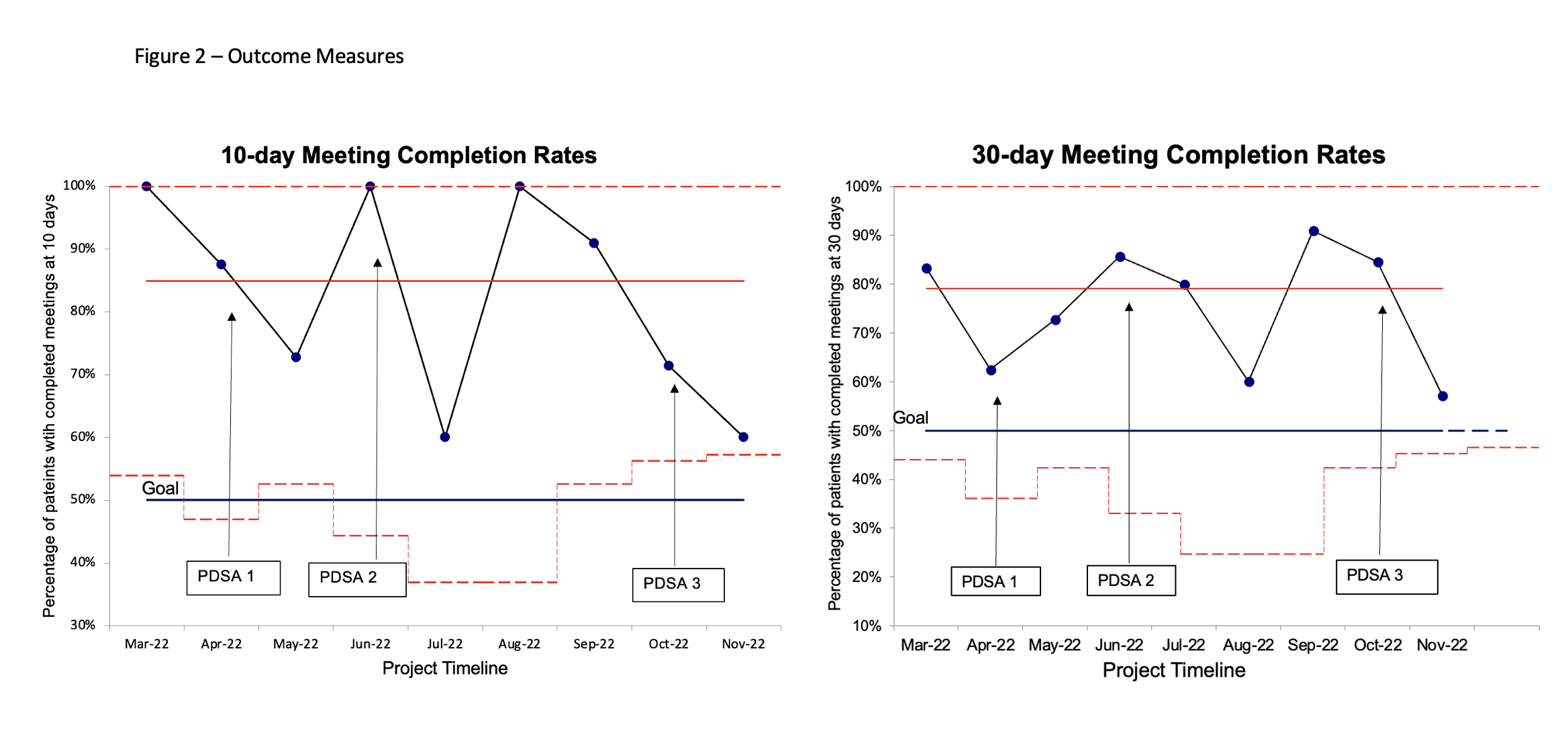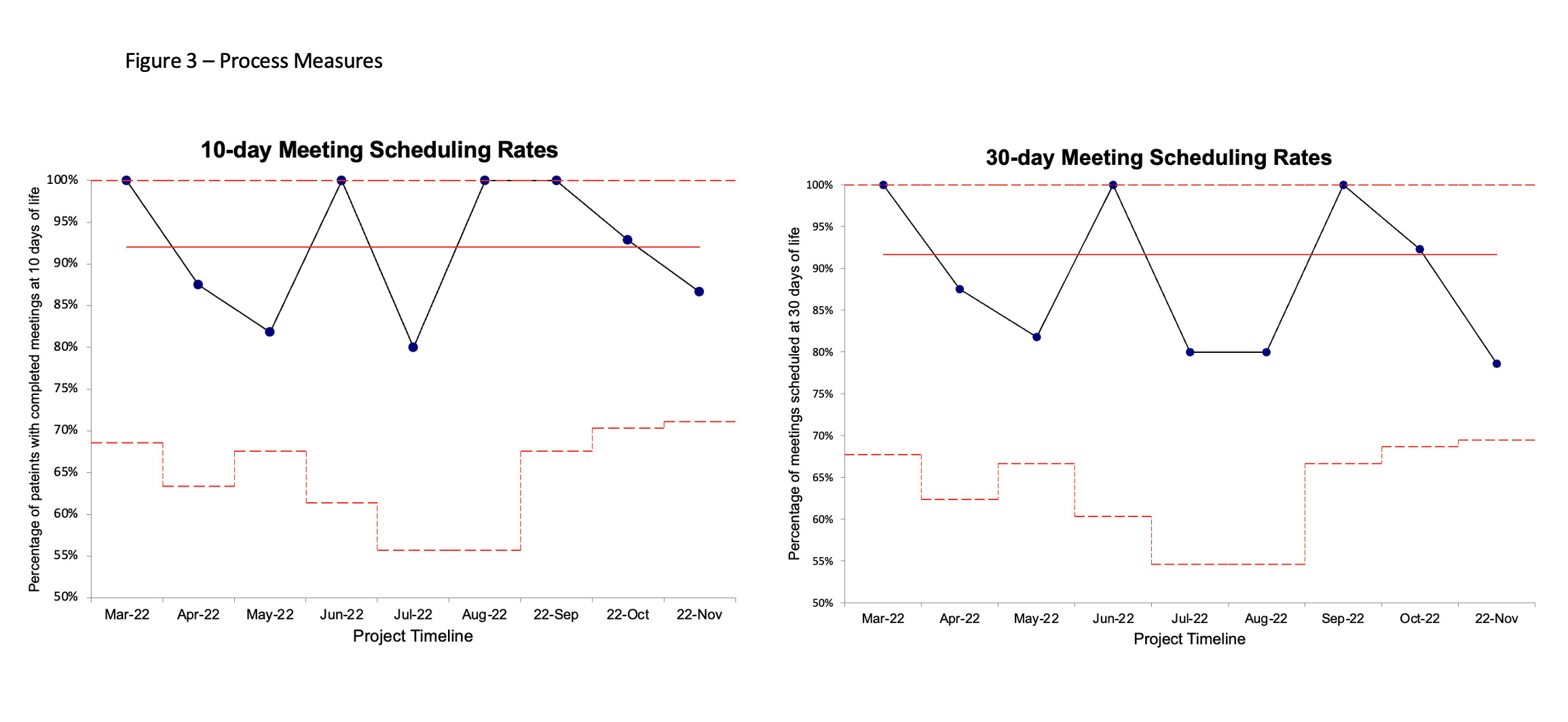Neonatal Quality Improvement
Neonatal Quality Improvement 1
649 - Improving parental knowledge of the status of medically complex neonates through scheduled conferences
Publication Number: 649.138

Serena Mooney (she/her/hers)
Medical Student
Brody School of Medicine at East Carolina University
Winterville, North Carolina, United States
Presenting Author(s)
Background:
There were several reports of parental dissatisfaction due to incomplete or inconsistent information from the health care team in our NICU. Thus, we designed a QI project improve the current system of communication between families and the medical team.
Objective:
Within 1 year, 50% of the families of medically complex neonates (< 30weeks at birth, needing surgery, or having genetic abnormalities) will have a family conference a 10 days and 1 month of life.
Design/Methods:
We formed a multidisciplinary team to improve communication through scheduled family conferences. We identify eligible neonates shortly after birth and the social worker team schedules the meetings, which are then conducted by the medical team. After six months, we surveyed the medical team to elicit suggestions for the project, including the perceived burden of conducting meetings. We contact families to assess their perception of the utility and perceived burden of the meetings after completing the 1-month meeting.
Measures
Outcome Measures:
Percentage of families with completed meetings at 10 days and 1 month of life (assessed separately)
Process Measures:
Percentage of families with scheduled meetings at 10 days and 1 month of life (assessed separately)
Percentage of patients with a meeting problem listed in the Electronic Medical Record (EMR)
Balancing measures:
Percentage of families that report extra burden from meetings. Goal < 40%.
Percentage of providers that report burden from conducting meetings assessed. Goal < 60%.
PDSA cycles
For PDSA cycle 1 in April 2022, we provided the social worker team the times during which clinical meetings were held, so meetings could be scheduled outside those times. For PDSA cycle 2 in June 2022, we expanded the pool of physicians conducting meetings to include the neonatology fellows and added a ‘family meeting’ problem to the EMR. For the third PDSA cycle in October 2022, based on the survey results, we raised the gestational age limit from 28 to 30 weeks and added phone completion of meetings if parents were unable to attend in person.
Results:
This is an on-going project. Currently, meeting completion rates are above our goal of 50% but lower at 1 month compared to 10 days of life. Meeting scheduling rates are variable. Neither physicians nor parents report undue burden from conducting or attending meetings.
Conclusion(s):
Family meetings are occurring at rates exceeding our goal with no perceived burden to physicians or parents. Our team is doing more work to target improvement in meeting scheduling and problem documentation rates.


